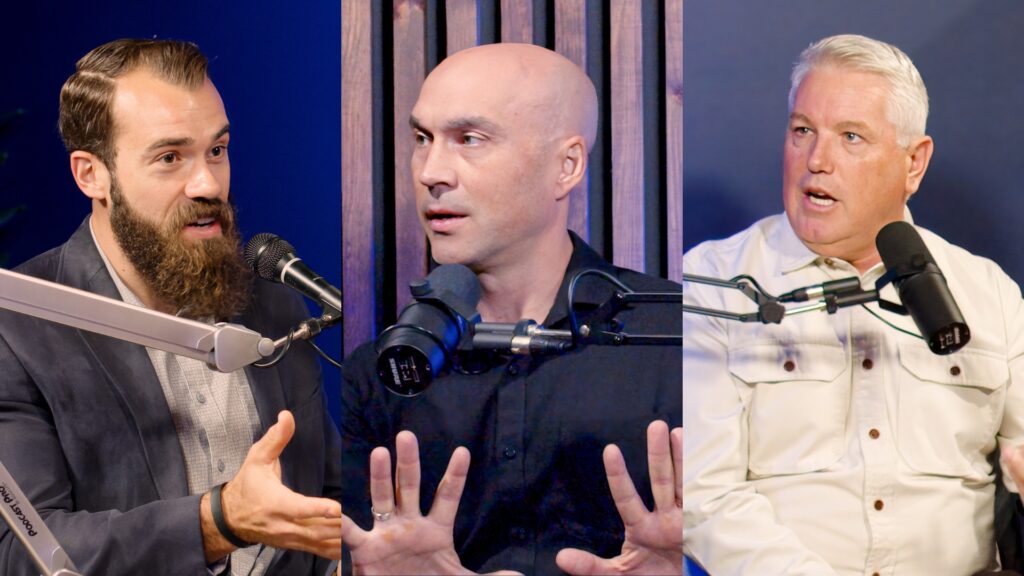Economies are beginning to reopen, people are venturing out into public spaces, and there is a timid tip-toeing towards restarting “normal” life. For churches, ministers, and missionaries this is both good news and also a time that is potentially pivotal in how we continue our ministries.
Throughout these past months I have longed to be gathered with my church family. I have missed out on sharing coffee, meals, and time with people—believers and lost alike. Such longing is certainly a shared experience for many who are eager to return to face-to-face ministry. At the same time as I am chomping at the bit for such opportunities, I don’t want to forget the lessons that the Lord has been teaching me in isolation.
Below I want to offer a few of my personal reflections on how some of my approach to ministry has been reformed during this time. This is neither an exhaustive list of ways that the Lord has challenged me, nor is it necessarily universal in application. Still, I am offering these thoughts as a prompt to all of us to take what the Lord has taught us and done in us during quarantine into our post-quarantine ministry. As so many have remarked in these last months, we must not waste this crisis by ignoring what the Lord has shown us through it.
Prayer & Scripture
In some ways it may seem trite to begin by discussing the lessons learned about the central importance of prayer and Bible reading. At the same time, I can’t point to a more important aspect of what I have learned during quarantine than this. Ministry—whether evangelism, discipleship, leadership development, or any other form of Christian work—is an exercise in dependence upon the living God and his revealing Word.
The mechanisms we rely on for the delivery of such ministry are certainly important, but the content and the source of confidence to deliver it remain unchanged regardless of the circumstances. Over these past weeks I have found myself in countless difficult conversations related to ministry adjustments that focused on answering the question, “How do we do ministry now that we can’t gather?” All of the conversations about how to do virtual ministry while under stay-at-home orders were necessary. However, those discussions often tended to begin and remain in the realm of logistics. Despite the necessity of considering best practices in ministry-delivery, our task in ministry is far more than logistics.
During quarantine I read a book that I had been meaning to read for quite some time. The book is called, The Care of Souls, by Harold Sinkbeil, and it includes reflections on the task of pastoring that arise from Senkbeil’s fifty years of ministry. In it we read the account of a seasoned minister who is pulling back the curtain to reveal the secret formula that has sustained his lifetime of ministry. In and through the whole book, Senkbeil reveals that the secret of lifelong ministry is clinging to Jesus by being in the Word and prayer and then pointing others to Jesus by leading them through the Word and in prayer.
The profound simplicity of this message and the means to making it known can often get lost in the logistics of ministry. As we determine safe and creative ways to reopen our church doors and re-engage our lost neighbors, let it be that we would not lose sight of the simple and steady call to minister from a posture of prayerful dependence upon the God whose Word feeds both us and those entrusted to us.
Disciple-Making & Leadership Empowerment
A second reflection that has been impressed afresh upon me during this time is the task of developing disciples and empowering leaders. Prior to the COVID-19 crisis, much of our ministry probably functioned on the fuel of precedent and expectation. Why do we hold this event? Because we always have. Why do we spend our money this way? Because we have budgeted for it annually for years. Why does our church service run this way? Because we’ve developed a Sunday morning template that lets us dismiss just before kickoff and when the buffets open.
This crisis, however, forced many churches and ministries to re-evaluate such why questions in light of the fact that certain ministries and activities have been necessarily suspended. As churches begin to come back “online,” I would argue that this question needs to be asked before each and every individual ministry activity is reinstated. If the answer to the why question does not in some way connect to the process of helping people to worship God by being and making disciples, then the ministry may be better left off the church calendar.
Additionally, prior to lock-down, many ministries relied upon a few key leaders who could serve sizable gatherings of people. A handful of qualified and experienced Sunday school teachers can provide biblical teaching for hundreds of adults and kids. A few passionate evangelists and missionaries could be mobilized to do the work of outreach on the church’s behalf. But when quarantine isolated people from one another, the importance developing and empowering disciples to be ministers themselves within their own spheres of immediate influence became unavoidable.
Stay-at-home orders have served to highlight the importance of equipping people to feed on the Word of God for themselves and lead their families and neighbors to do likewise. Long before COVID-19, though, Paul pointed to this aspect of the task. In Ephesians 4:11–13a we read, “And he gave the apostles, the prophets, the evangelists, the shepherds and teachers to equip the saints for the work of ministry, for building up the body of Christ, until we all attain to the unity of the faith and of the knowledge of the Son of God.” Though Paul lists several types of leaders within the Ephesian community, he clearly states that these leaders are not the ones who do the ministry on behalf of the church. Rather, these leaders are given for the express purpose of equipping the saints to do the ministry as part of their role within the body of Christ.
Social distancing and stay-at-home orders have reinforced the importance for the ministries and ministers of the church to be focused on equipping the saints. So too, missionaries must be cognizant of the fact that their goal is not to make converts who remain dependent upon the missionary. The goal of missions—and the goal of all ministry—is to equip the saints to be about the work of ministry. Before we jump back into “business-as-usual,” we must spend time addressing whether or not the ministries, activities, programs, and approaches we’ve taken historically actually serve to equip the saints to minister wherever they find themselves.
Patient Listening & Neighbor Love
Finally, during this season many people have been isolated and unable to socialize in their normal ways. Perhaps you’ve shared my experience that during this time phone calls, Zoom meetings, and socially-distanced chats in the grocery store have often lingered much longer than the purpose of the communication required. People are hungry for social interaction.
One lesson that I have been learning during this time is to allow people to speak and to listen to what they are saying. It is easy to dismiss someone’s extended rambling as their effort to make up for the lack of conversation they have experienced in lock-down. At the same time, I have had more than a handful of these conversations that eventually included uncharacteristic admission of struggle. Many have laughingly made comments such as, “I’m not OK.” Only later to have their face fall, and more reflectively comment, “No, I think I really might not be OK.”
My personal impulse in ministry has often defaulted to having an answer ready at hand that will solve a problem. On the mission field, my temptation in every conversation was to find the “in” to transitioning to sharing the gospel. While this desire is born of good motivations, often it has led me to not hearing what the other person is saying because I am looking for an entryway into what I want to talk about.
During this season, I have been invited into several people’s struggle through listening to them. In so doing, I have become convinced that listening well is a better way to actually ministering the Word and the gospel to hurting souls. Listening to your neighbor—and actually hearing them—often affords you the opportunity to be entrusted with their underlying wounds, doubts, and struggles.
I am finding that when you hear a person’s deep heartache, your application of the Word to their pain appears to be much less sterile and pre-packaged. By listening and ministering the Word to a hurting neighbor you demonstrate both neighbor-love and the power of the gospel to speak to their particular pain. On the mission field or in the church, then, we are again reminded that all of our fruitful ministry comes from dependence upon the living God to prove his revealing Word sufficient to meet people in their sin and struggle and offer forgiveness and healing. As ministry returns to “normal” may we not forget the lessons learned in the chaos.




